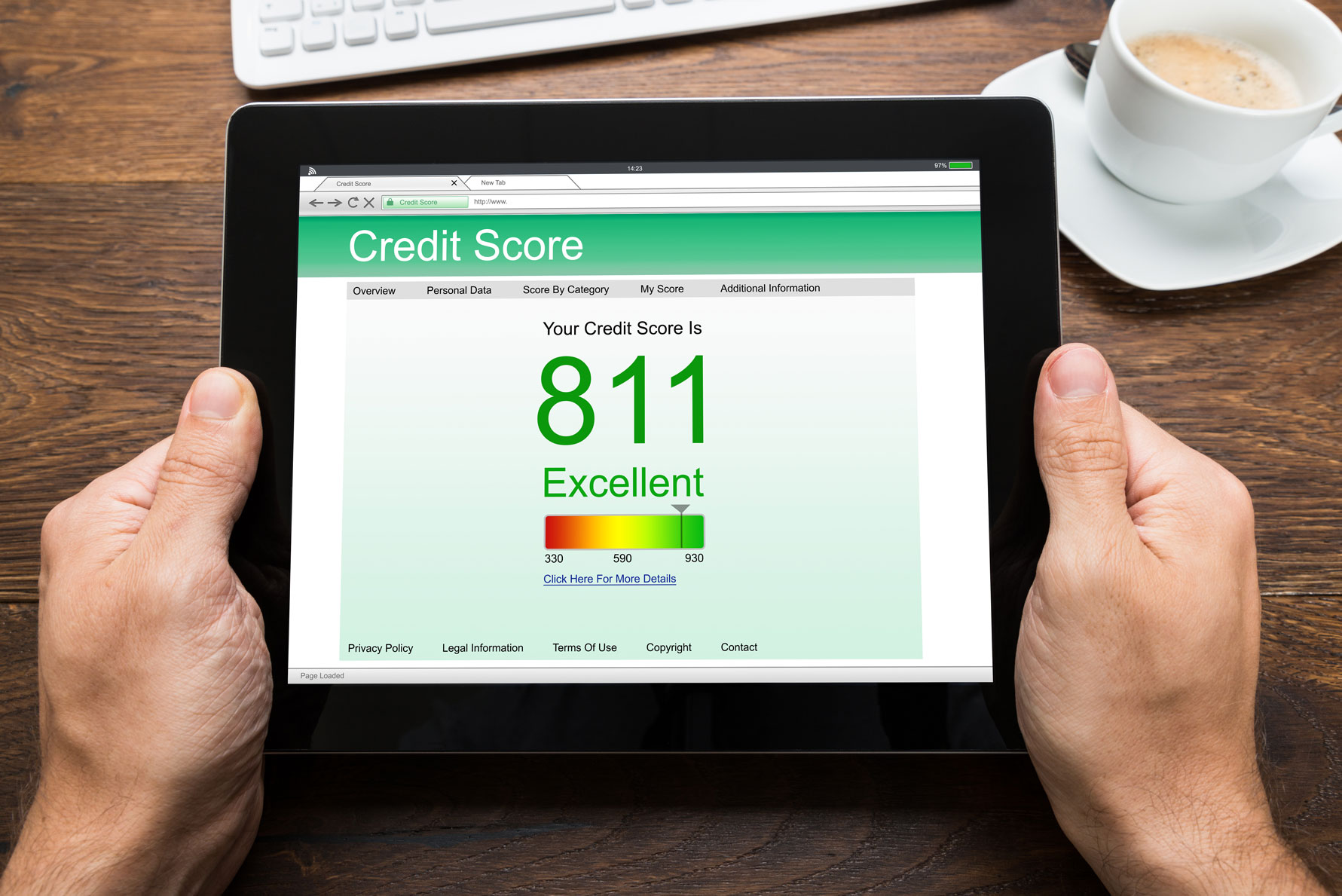
Credit Scores and The Role They Play in RV Loan Approvals
They say, “You can’t judge a book by its cover,” but when it comes to the RV loan approval process, lenders often use credit scores as a way to assess your financial status and credibility.
That number plays a crucial role in determining whether you will be approved for a recreational vehicle loan and what interest rate you will receive.
Understanding how credit scores work and what factors influence them is essential if you want to secure the best loan terms for your dream RV, travel trailer, camping trailer, or even
Take some time today along with us to explore the role of credit scores in the RV loan approval process, their importance in RV financing, and how you can improve it to increase your chances of loan approval.
What is Your Credit Score?
Your credit score is a three-digit number that represents your creditworthiness. It’s calculated based on various factors, including your loan and credit card payment history, credit utilization, length of credit history, types of credit used, and new credit accounts.
Loan lenders use it to assess the risk of lending you money and determine the terms of your loan, such as interest rates, monthly payments, and loan amounts. A higher score indicates a lower risk, making it easier for you to secure a personal loan with favorable terms.
On the other hand, a lower or bad credit score may result in higher interest rates, unfavorable loan terms, or even loan denial. Therefore, it’s essential to maintain a good credit score to increase your chances of successfully getting that RV purchase you’ve always dreamed of.
Every important and credible lender will take a look at your credit history, from traditional lenders like credit unions to banks and even the newer online lenders, although these last ones tend to have more options with people with bad credit scores.
How Credit Scores are Used in The RV Loan Approval Process
Maintaining an excellent credit score is crucial when it comes to securing favorable financing options for your RV purchase.
Lenders will review your credit report to see if you have a history of making payments on time and if you have any outstanding debts or collections. These are crucial hints to see if you can make your monthly loan payments for any future RV loan.
They’ll also assess your debt-to-income ratio to determine if you have enough income to comfortably make your monthly loan payments.
Therefore, it’s important to regularly monitor your credit score and take steps to improve it if necessary, ensuring you have the best chance of securing affordable RV financing.
Factors That Can Impact Your Credit History and Score
Your score can be influenced by several aspects of your financial history, some of which might even surprise you.
Payment history
One of the major factors is your payment history. This includes whether you have paid your bills on time if you have any late payments or delinquencies, and if you have any accounts in collections.
Debt or Credit Utilization Ratio
Another important factor is your debt ratio, also known as the credit utilization ratio, which is the percentage of available credit you’re using. It’s recommended to keep this ratio below 30% to maintain a good credit score.
Length of Credit History
The length of your credit history also plays a role, as having a longer credit history demonstrates your ability to manage credit responsibly.
Other Credit Accounts and Types of Loans You Have
Other factors that can impact your score include the types of credit accounts you have, any recent credit or personal loan applications, and the amount of debt you owe.
Understanding these factors can help you make informed decisions to improve your credit score.

Tips for Improving Your Credit Score
To increase your chances of RV loan approval, focus on improving your financial history and getting to a minimum credit score for an RV loan through some of these responsible financial habits:
- Start by paying your bills on time and in full each month.
- Late payments can hurt your score, so make sure to set reminders or automate payments to avoid any missed deadlines.
- Try to keep your credit utilization ratio low by using only a small portion of your available credit, as lenders prefer borrowers who demonstrate responsible credit management.
- It’s also important to regularly check your credit report for any errors or discrepancies. If you find any, dispute them immediately to ensure your credit score accurately reflects your financial behavior.
Other Important Terms That Play a Role in RV Loans
Credit scores aren’t the sole factor lenders consider when approving RV loans. Although it varies depending on the type of loan, there are several common denominators that don’t change from lender to lender.
Interest Rates
Lenders use interest rates to determine the cost of borrowing for potential buyers. Higher interest rates can make monthly payments more expensive, which may impact a borrower’s ability to afford the loan.
Conversely, lower loan interest rates can make RV loans more affordable and increase the likelihood of approval. Lenders consider an applicant’s credit history, income, and current market conditions when determining the interest rate for an RV loan.
Down Payments
Lenders often require a down payment as it reduces the risk they take on when financing a recreational vehicle. A larger down payment demonstrates the borrower’s commitment and lowers the loan-to-value ratio, making the loan less risky for the lender. It also helps to lower the monthly payments and overall interest costs. Therefore, a substantial down payment relative to the purchase price increases the likelihood of RV loan approval and improves the borrower’s financial position.
Secured Loans vs Unsecured Loans
Two of the major financial decisions that you need to make and understand fully are between secured and unsecured loans, especially when facing complicated purchases like for an RV.
Secured loans are backed by collateral, such as the RV itself, which means that if the borrower defaults on the loan, the lender can repossess the vehicle.
Unsecured loans, on the other hand, do not require collateral but typically have higher interest rates as they pose a higher risk to the lender. An example of an unsecured loan is a credit card.
Ultimately, the choice between secured and unsecured loans depends on the borrower’s preference for risk and their ability to provide collateral.
Employment History
Borrowers with a stable employment history are a favorite of lenders, as it demonstrates their ability to generate a consistent income and meet loan obligations. A longer employment history can also provide lenders with a sense of stability and reliability. On the other hand, a shorter or inconsistent employment history may raise concerns about the borrower’s ability to make timely loan payments. Lenders may require a certain minimum length of employment history to ensure the borrower’s financial stability before approving an RV loan.
Source of Income, Financial Health, and Assets
A higher and stable source of income and significant assets can enhance the borrower’s chances of getting approved for an RV loan, as it demonstrates financial stability and the ability to make regular payments. Further, a borrower with substantial financial wealth may be more likely to be approved for a larger loan amount, providing more flexibility in purchasing their desired RV.
Financial Institutions and Lenders That Offer RV Loans
There are several types of lenders and financial institutions that offer RV loans. One common option is traditional banks and credit unions, which also have experience with traditional auto loans. These institutions typically have competitive interest rates and offer a variety of loan terms. They may require a down payment and have strict credit requirements.
Like with auto loans, some RV dealerships also offer financing options through their own in-house financing departments.
These loans may have higher interest rates, but they can be convenient for buyers who want to complete the purchase process in one location.
Another option is specialized RV lenders, like Southeast Financial. These lenders focus specifically on financing RV purchases and often have more flexible loan options. They understand the unique nature of RV loans and may offer longer loan terms or lower down payment requirements.

Don’t Let Bad Credit Stop You from Your RV Dreams
So, now you know that credit scores play a crucial role in the RV loan approval process. And if your credit score is short of the minimum credit score requirements, don’t worry. You can improve it by paying bills on time, reducing debt, and keeping credit utilization low. Or seek alternative funding for your motorhome, towable travel trailer, or camper loan.
Southeast Financial, for example, is the leader in RV Financing nationwide. We provide financing options for new and used RVs, offering extended loan terms that result in lower payment rates for you. We are able to secure financing in all 50 states and offer both new and used RV financing. We also have ample experience with bad credit RV loans, so feel free to reach out to us online to learn more about our RV loan program and the terms we offer.
While we cannot guarantee an immediate best RV loan with low-interest rates, we can assure you that we will provide you with the best opportunity to obtain financing, even with poor credit or a low credit score.
Frequently Asked Questions
Can I Get an RV Loan With a Low Credit Score?
Yes, you can get an RV loan with a low credit score. However, it may be more challenging due to the lenders’ considerations. These considerations include factors such as income, debt-to-income ratio, and down payment.
If you have a poor credit score, there are also alternative financing options or loan products available for RV purchases. These options may include higher interest rates, shorter loan terms, or the need for a cosigner.
How Long Does It Typically Take to Improve a Credit Score for RV Loan Approval?
Improving your credit score for RV loan approval typically takes time and more than a year. However, you can see improvements in a couple of months if your financial circumstances improve that much. You can increase it by making consistent payments, reducing debt, and avoiding new credit applications.
It’s a gradual process, but worth it in the end.
Can I Apply for an RV Loan Without a Credit History?
You can still apply for an RV loan without a credit history. Lenders may consider other factors, such as your income, employment history, and down payment amount, to determine your eligibility for a loan.

